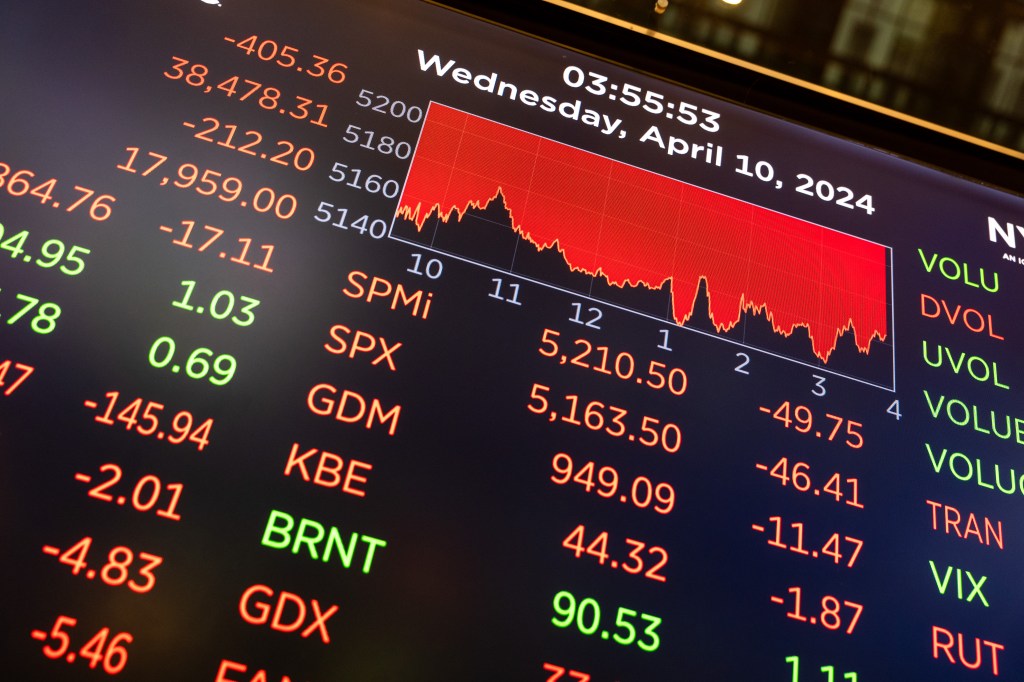Wholesale prices last month saw their sharpest year-on-year increase in 11 months — one day after a hotter-than-expected US inflation report sent stocks tumbling and stoked fears that the Fed won’t cut interest rates anytime soon.
The Producer Price Index — the metric that tracks the prices of products sold as they leave manufacturers — rose 2.1% in March versus a year earlier — its steepest gain since April 2023, according to the US Labor Department.
On the positive side, the PPI’s increase — driven by rising prices for services including airfares and securities brokerage — came in slightly below economist’s forecasts for a 2.2% gain, according to Bloomberg. On a month-to-month basis, the PPI rose 0.2 after a sharp advance in February, slightly below the 0.3 increase that economists had expected.

The lower-than-expected numbers came as a modest relief on Thursday morning before the bell. Dow futures were around even after earlier trading down as much as 150 points while S&P 500 futures were also trading flat.
On Wednesday, the Bureau of Labor Statistics reported that the Consumer Price Index — which tracks changes in the costs of everyday goods and services — rose 3.5%, well above the Fed’s 2% target and the third straight month that the closely watched metric came in higher than expected.
The Dow dropped 422 points on Wednesday as hopes for a start to rate cuts for the Federal Reserve were pushed back to September from June, with the consensus forecast getting trimmed to two, quarter-point reductions instead of three.

Wholesale prices outside the volatile food and energy categories rose 0.2% from February to March, the same accelerated pace as in the previous month.
The Fed closely tracks core prices because they tend to provide a good read of where inflation is headed.
The March figures provide concerning evidence that inflation is stuck at an elevated level after having steadily dropped in the second half of 2023 and threatening to torpedo the prospect of multiple rate cuts this year.
Fed officials have made clear that with the economy healthy, they’re in no rush to cut their benchmark rate despite their earlier projections that they would do so three times this year.
Wednesday’s CPI report “pours cold water on the view that the faster readings in January and February simply represented the start of new-year price increases that were not likely to persist,” Kathy Bostjancic, chief economist at Nationwide, said in a research note.
“The lack of moderation in inflation will undermine Fed officials’ confidence that inflation is on a sustainable course back to 2% and likely delays rate cuts to September at the earliest and could push off rate reductions to next year.”
With Post Wires














